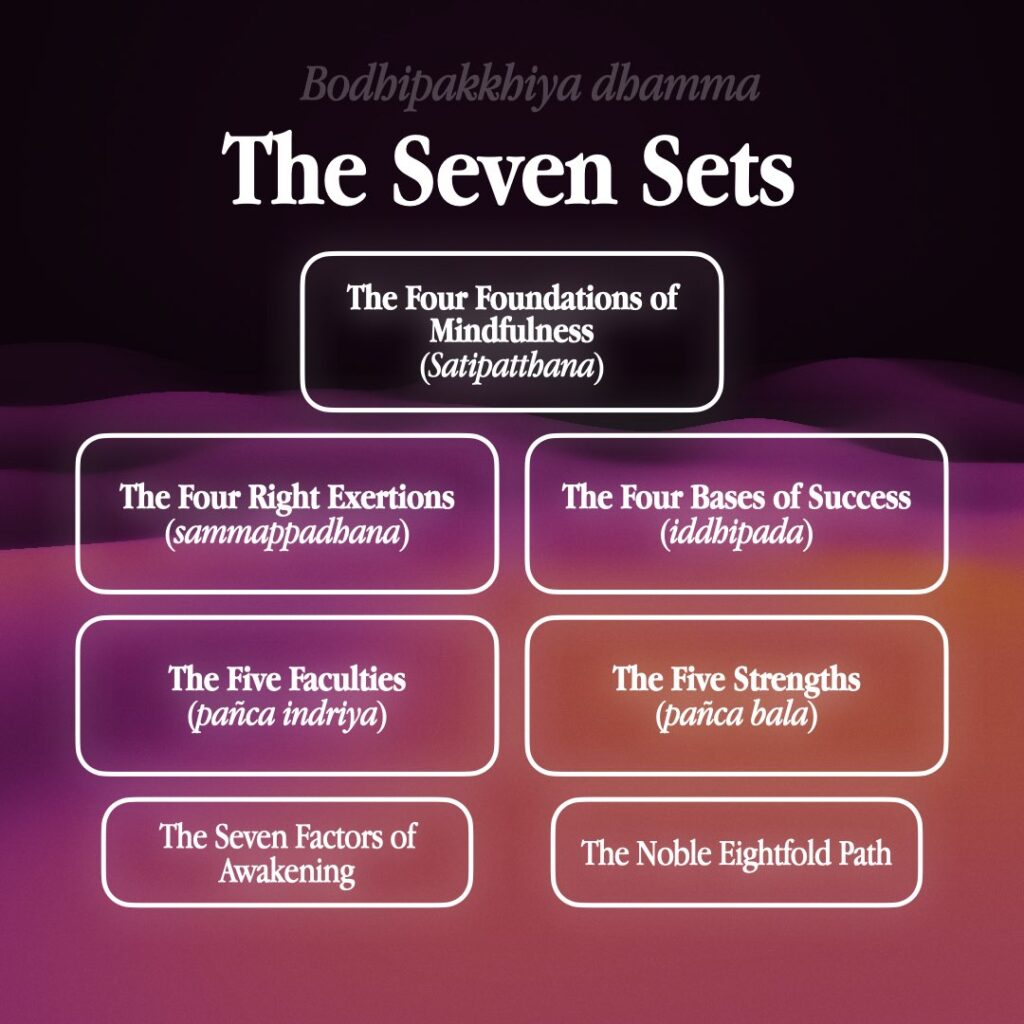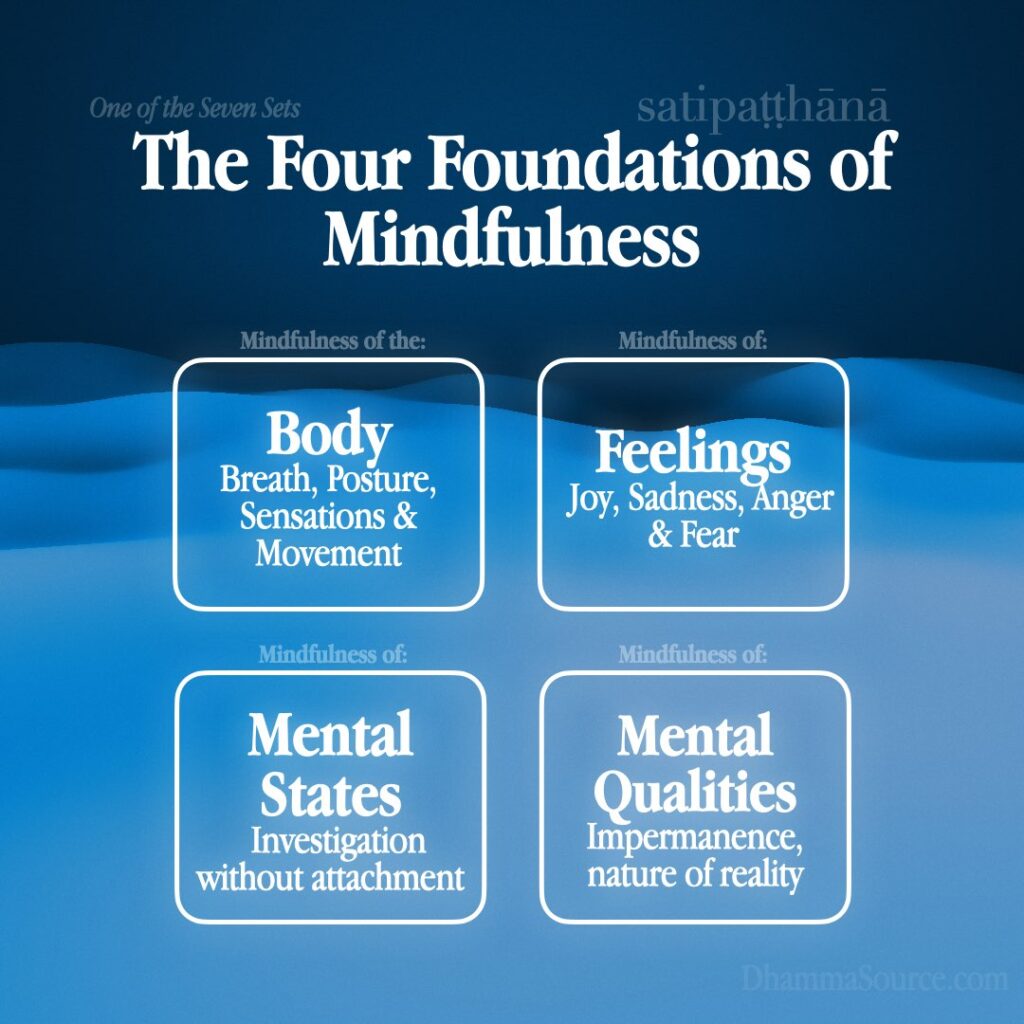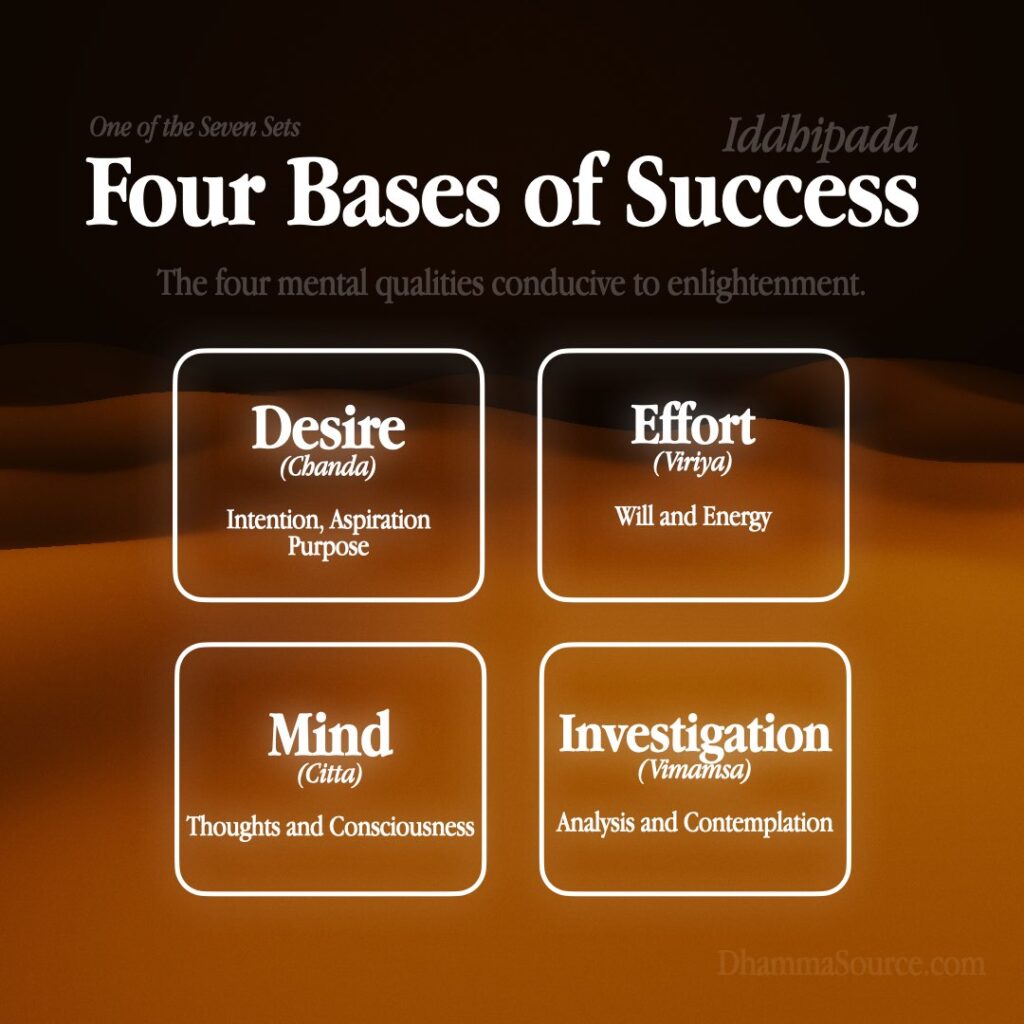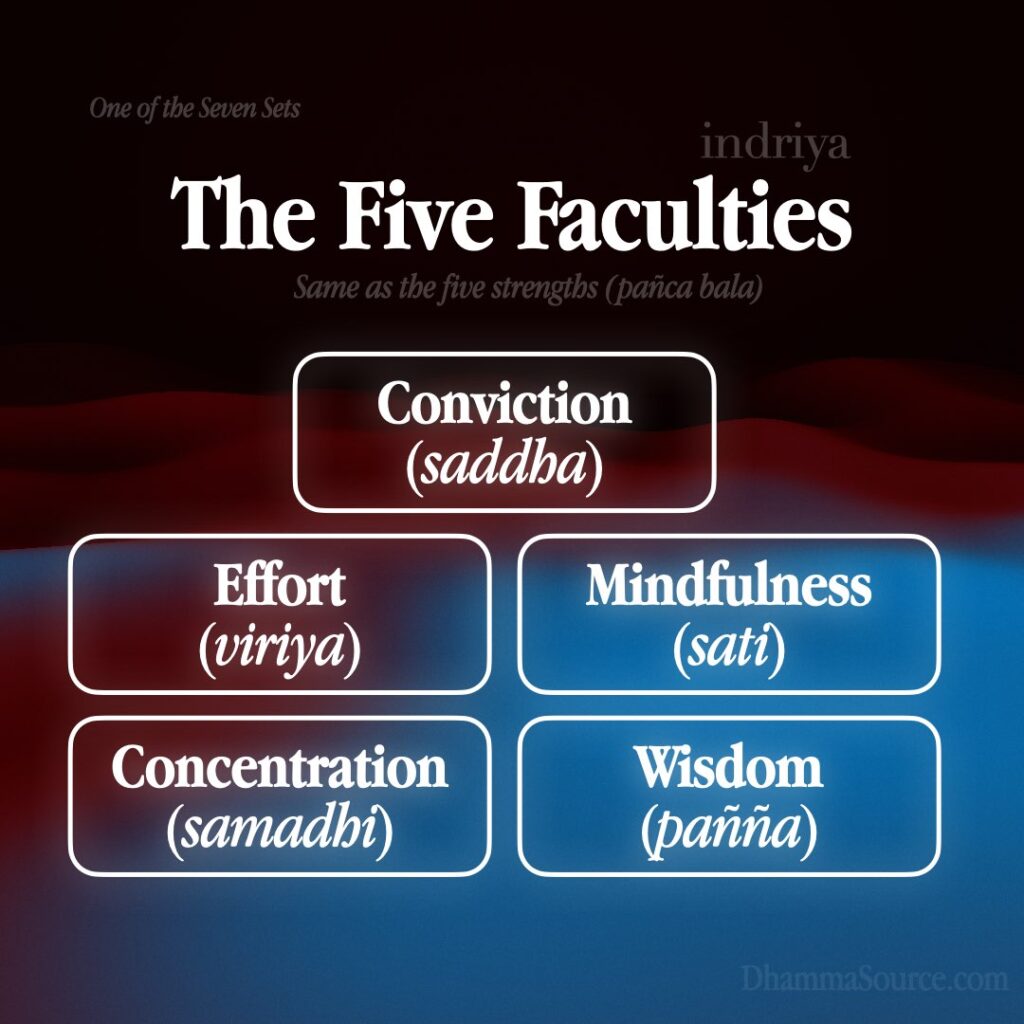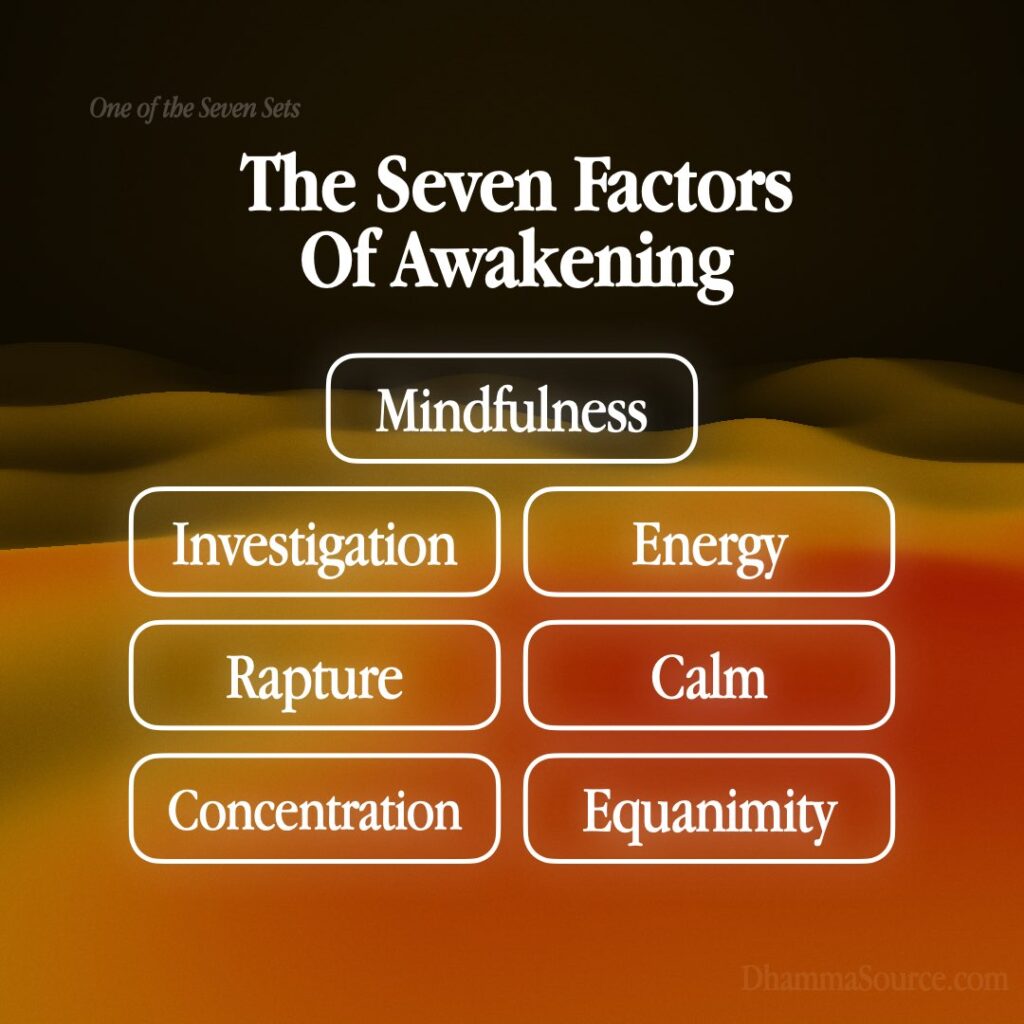The Seven Sets

In Buddhism, there are several important groups of teachings that are often organized into sets, with each set playing a crucial role in the path to enlightenment. While there are numerous sets of teachings in Buddhism, the “Seven Sets” typically refer to a collection of seven core sets of principles that provide a comprehensive framework for spiritual practice and understanding.
These seven sets are:
Four establishments/presences of mindfulness (cattāro satipaṭṭhānā)
- Mindfulness of the body (kāyānupassanā, S. kayānupasthāna)
- Mindfulness of feelings (vedanānupassanā, S. vedanānupasthāna)
- Mindfulness of mental states (cittānupassanā, S. cittanupasthāna)
- Mindfulness of mental qualities (dhammānupassanā, S. dharmanupasthāna)
Four right exertions (cattāro sammappadhānā)
- Effort for the preventing of unskillful states to arise
- Effort for the abandoning of the already arisen unskillful states
- Effort for the arising of skillful states
- Effort for the sustaining and increasing of arisen skillful states
Four bases of spiritual power (cattāro iddhipādā)
- Intention or will
- Effort
- Consciousness
- Skill of Analysis
Five spiritual faculties (pañca indriya)
- Conviction
- Effort
- Mindfulness (sati)
- Concentration (samādhi)
- Wisdom
Five Strengths (pañca bala)
- Conviction
- Effort
- Mindfulness
- Concentration/Unification
- Wisdom
Read more The Five Faculties
Seven Factors of Awakening
- Mindfulness
- Investigation
- Effort
- Joy
- Tranquillity
- Concentration/Unification
- Equanimity
Noble Eightfold Path
- Right Understanding (sammā diṭṭhi, S. samyag-dṛṣṭi)
- Right Intention (sammā saṅkappa, S. samyak-saṃkalpa)
- Right Speech (sammā vācā, S. samyag-vāc)
- Right Action (sammā kammanta, S. samyak-karmānta)
- Right Livelihood (sammā ājīva, S. samyag-ājīva)
- Right Effort/Energy (sammā vāyāma, S. samyag-vyāyāma)
- Right Mindfulness (sammā sati, S. samyak-smṛti)
- Right Concentration/Unification (sammā samādhi, S. samyak-samādhi)
